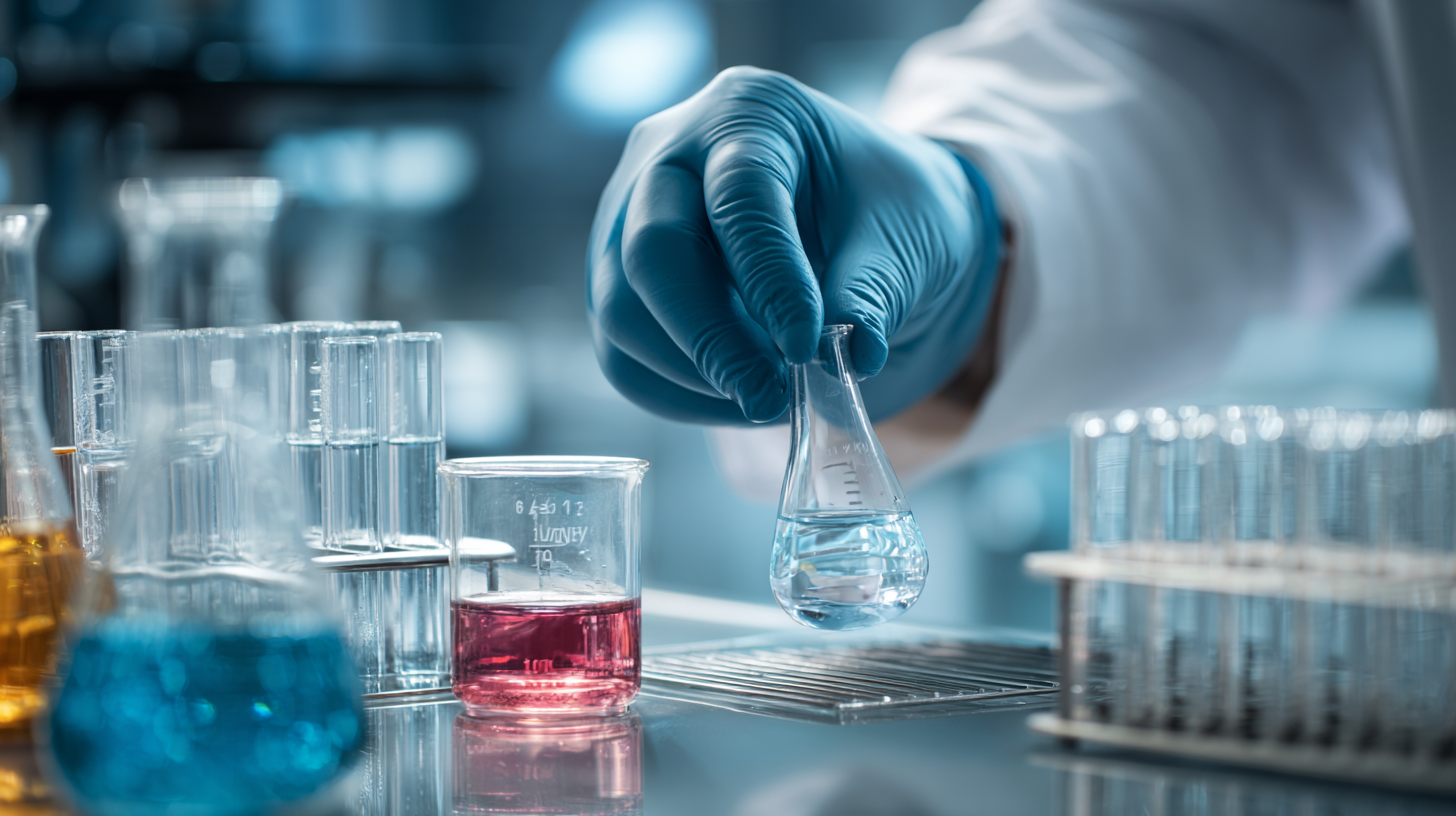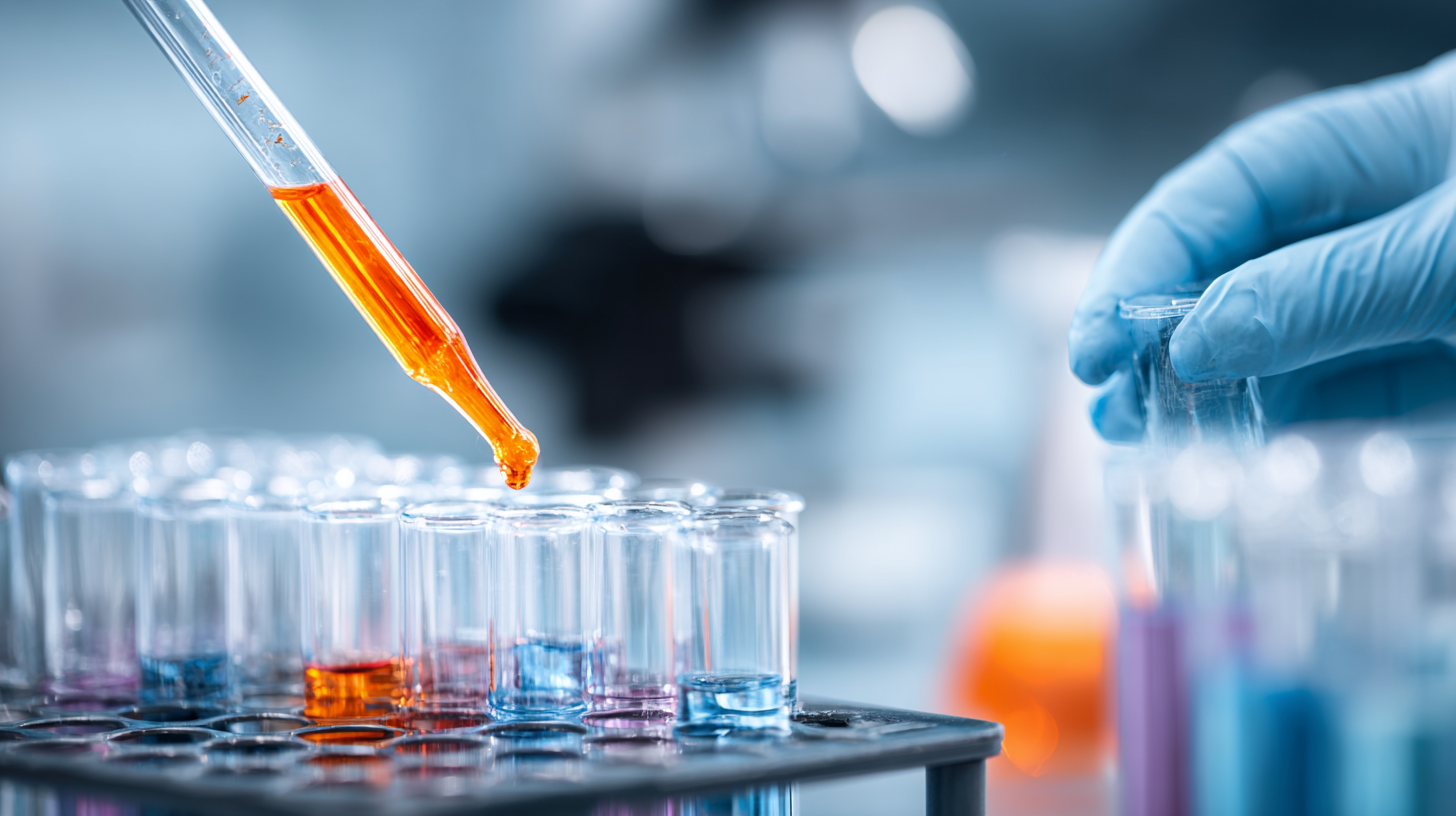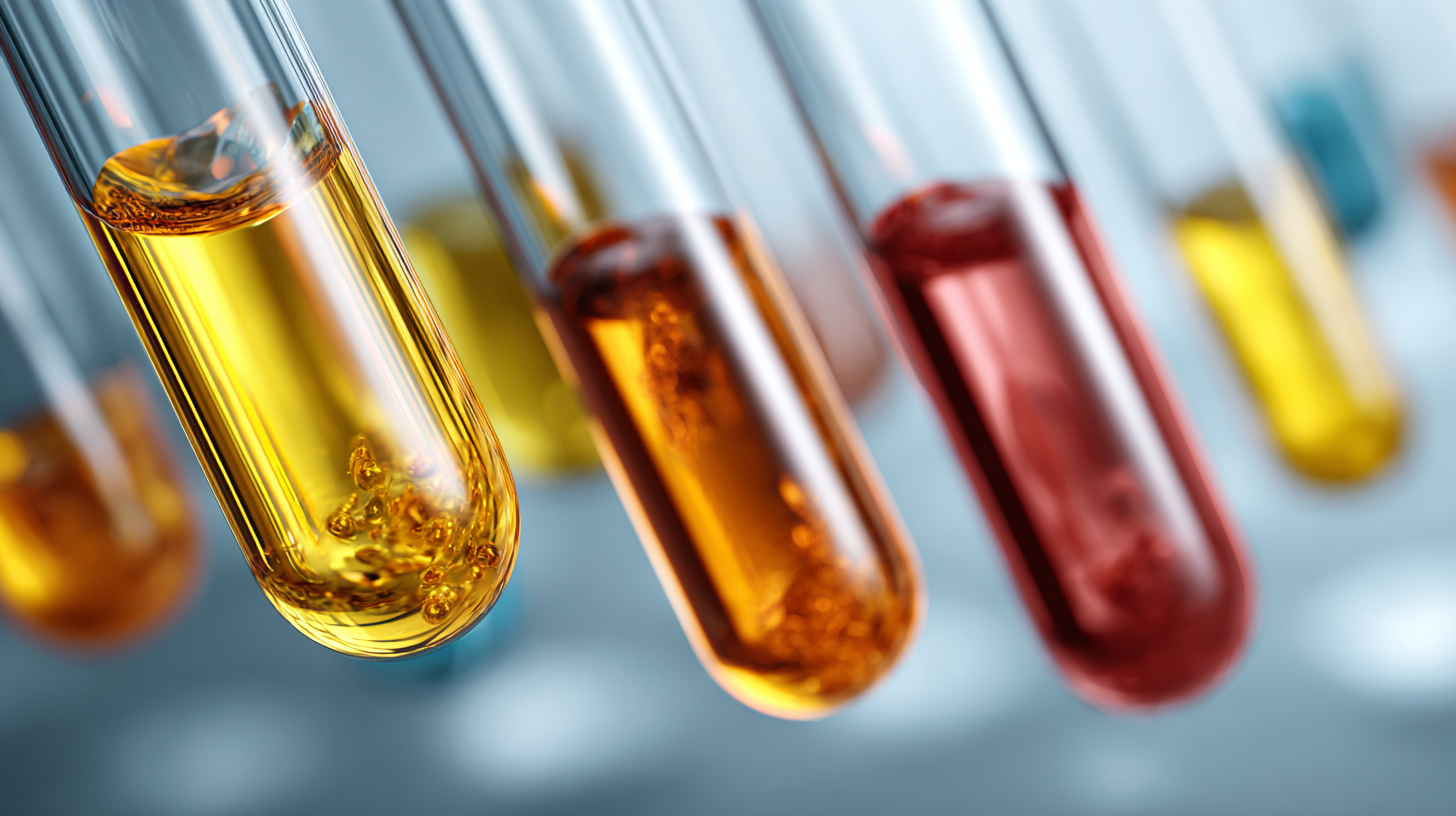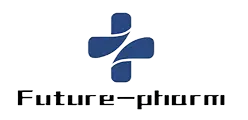
Mastering Best Pharmaceutical Testing Techniques for Quality Assurance
In the rapidly evolving landscape of the pharmaceutical industry, ensuring the safety and efficacy of products is paramount. Pharmaceutical testing stands as a critical pillar in the quality assurance process, safeguarding not only the health of consumers but also the integrity of manufacturers. As China continues to emerge as a global manufacturing powerhouse, the importance of mastering best practices in pharmaceutical testing cannot be overstated. With an emphasis on rigorous quality standards, innovative methodologies, and compliance with international regulations, companies can achieve excellence in their production processes. This blog will explore the essential testing techniques that underpin successful pharmaceutical manufacturing, highlighting how these practices contribute to China's reputation as a trusted global partner in quality production.

Join us as we delve into the intricacies of pharmaceutical testing and its vital role in maintaining the highest standards in the industry.
The Importance of Pharmaceutical Testing in Ensuring Product Safety and Efficacy
Pharmaceutical testing plays a crucial role in ensuring the safety and efficacy of medical products before they reach consumers. Rigorous testing protocols are essential to identify any potential hazards associated with a drug or treatment, ensuring that it meets the highest safety standards. These tests are not merely routine; they are critical assessments that evaluate the drug's composition, stability, and bioavailability, allowing manufacturers to confirm that their products will perform as intended in real-world applications.
Moreover, rigorous testing helps build trust among healthcare providers and patients alike. By investing in comprehensive quality assurance measures, pharmaceutical companies can demonstrate their commitment to public health. Effective testing can also prevent devastating consequences, such as adverse reactions or ineffective treatments, which can arise from insufficiently vetted products. As the industry continues to evolve with new regulations and technological advancements, adhering to stringent testing methods remains paramount for safeguarding patient health and fostering confidence in therapeutic solutions.
Adopting Advanced Analytical Techniques: Case Studies in Quality Assurance
In the realm of pharmaceuticals, the integration of advanced analytical techniques is pivotal in enhancing quality assurance practices. A report by the International Society for Pharmaceutical Engineering (ISPE) highlights that over 75% of pharmaceutical companies are now employing sophisticated analytical methodologies to ensure product integrity and compliance with regulatory standards. These techniques not only streamline the testing processes but also improve the accuracy of results, significantly reducing the likelihood of costly recalls and enhancing patient safety.
Case studies reveal compelling examples of successful implementations. A prominent study conducted by the American Association of Pharmaceutical Scientists (AAPS) showed that the adoption of high-performance liquid chromatography (HPLC) in quality control processes led to a 40% reduction in assay times while increasing detection sensitivity by 30%. Similarly, the use of mass spectrometry (MS) in stability testing demonstrated a decrease in operational costs by 25%, while also providing deeper insights into molecular stability. As further advancements emerge, the pharmaceutical industry must continue to embrace these cutting-edge techniques to navigate the complexities of modern quality assurance effectively.

Regulatory Compliance and Its Impact on Testing Processes in Pharma
In the pharmaceutical industry, regulatory compliance is paramount to ensuring the safety and efficacy of products. According to a report by the International Society for Pharmaceutical Engineering, 75% of pharmaceutical companies reported that complying with FDA regulations significantly influences their testing processes. Stricter adherence to guidelines not only augments the quality of testing but also enhances the trust of healthcare professionals and consumers in pharmaceutical products. In fact, companies with robust compliance programs see a 30% reduction in product recalls, illustrating the impact of regulatory adherence on quality assurance efforts.
Furthermore, the evolving landscape of regulations mandates continuous refinement of testing techniques. The Pharmaceutical Research and Manufacturers of America (PhRMA) notes that over 50% of new drug applications face delays due to inadequate testing documentation and compliance-related issues. As regulations become more sophisticated, the integration of advanced testing methodologies such as real-time PCR and high-throughput screening is essential. These innovations not only expedite the testing process but also ensure alignment with regulatory standards, ultimately leading to quicker market access for new therapies and increased patient safety.
Mastering Best Pharmaceutical Testing Techniques for Quality Assurance
Innovative Quality Control Methods: Driving Efficiency in Drug Development
In the ever-evolving landscape of drug development, innovative quality control methods have become essential in driving efficiency and ensuring the safety and efficacy of new therapies. Recent advancements in artificial intelligence (AI) have illustrated a transformative impact on the pharmaceutical industry, not only streamlining processes but also enhancing the precision of quality assurance. For instance, AI-driven analysis can significantly reduce the time required for drug development cycles by automating tedious tasks and improving decision-making based on vast datasets. According to a report by the Pharmaceutical Research and Manufacturers of America, integrating AI can lead to a 30% reduction in time to market for new drugs.
Moreover, the incorporation of cutting-edge technologies such as 3D printing (3DP) is revolutionizing quality control methodologies.
 3DP is being utilized for the rapid prototyping of drug delivery systems and testing devices, allowing for a more flexible and customized approach to manufacturing pharmaceutical products. A recent review highlighted that 3DP can enhance the efficiency of drug formulations, enabling the creation of semi-solid extruded tablets tailored for personalized pediatric use. These innovations not only improve the quality of pharmaceuticals but also promote sustainable practices in the industry, reflecting a growing commitment to responsible drug development practices amid an urgent demand for more effective treatments.
3DP is being utilized for the rapid prototyping of drug delivery systems and testing devices, allowing for a more flexible and customized approach to manufacturing pharmaceutical products. A recent review highlighted that 3DP can enhance the efficiency of drug formulations, enabling the creation of semi-solid extruded tablets tailored for personalized pediatric use. These innovations not only improve the quality of pharmaceuticals but also promote sustainable practices in the industry, reflecting a growing commitment to responsible drug development practices amid an urgent demand for more effective treatments.
Real-World Applications of Testing Techniques: Lessons from Industry Leaders
In the pharmaceutical industry, quality assurance is paramount, and mastering the latest testing techniques is essential for ensuring product safety and efficacy. Industry leaders have shared valuable insights on real-world applications of these techniques, emphasizing how they navigate the complexities of drug development and manufacturing. By employing advanced methodologies such as high-performance liquid chromatography (HPLC) and mass spectrometry, companies can achieve a higher level of precision in their testing processes, ultimately leading to better patient outcomes.
One remarkable example comes from a leading pharmaceutical company that implemented robustness testing to optimize its manufacturing processes. By simulating various stress conditions, they identified potential failure points and adjusted their protocols accordingly. This proactive approach not only reduced product recalls but also enhanced their reputation for reliability. Furthermore, collaboration with regulatory bodies and continuous training of quality assurance teams have become crucial elements in adapting to evolving industry standards. The lessons learned from these industry leaders serve as a powerful reminder that the commitment to quality in pharmaceutical testing translates directly to improved public health and safety.
Mastering Best Pharmaceutical Testing Techniques for Quality Assurance
| Testing Technique | Application Area | Key Benefits | Industry Leader Insights |
|---|---|---|---|
| Chromatography | Purity Testing | High precision in separation | Significant focus on method validation |
| Mass Spectrometry | Ingredient Verification | High sensitivity and specificity | Adoption of cutting-edge technologies |
| Bioassays | Efficacy Testing | True measurement of biological activity | Collaboration with academic institutions |
| Stability Testing | Shelf-life Assessment | Ensures product reliability | Data-driven decision making |
| pH Testing | Formulation Adjustments | Essential for product efficacy | Routine checks enhance quality control |
